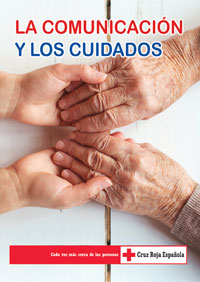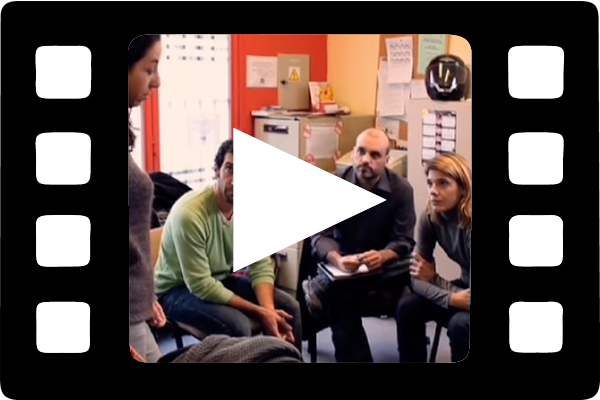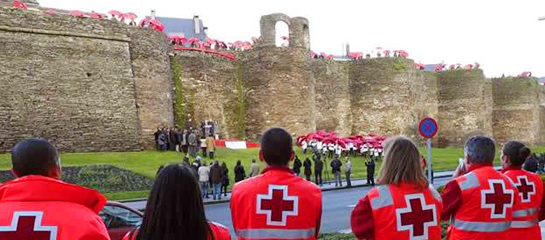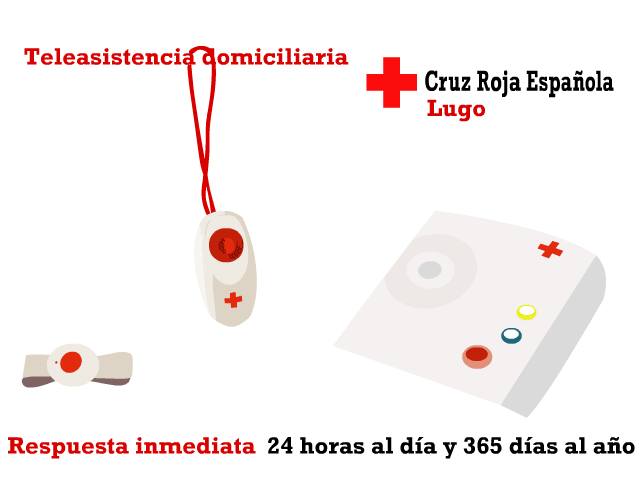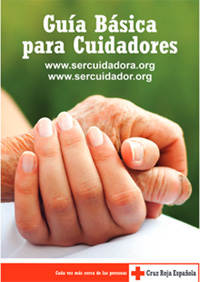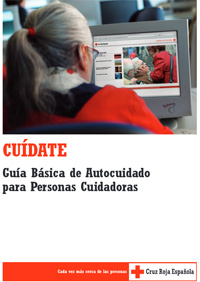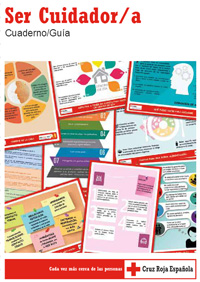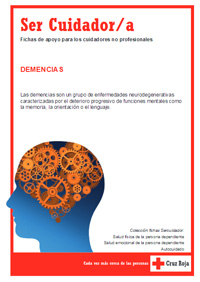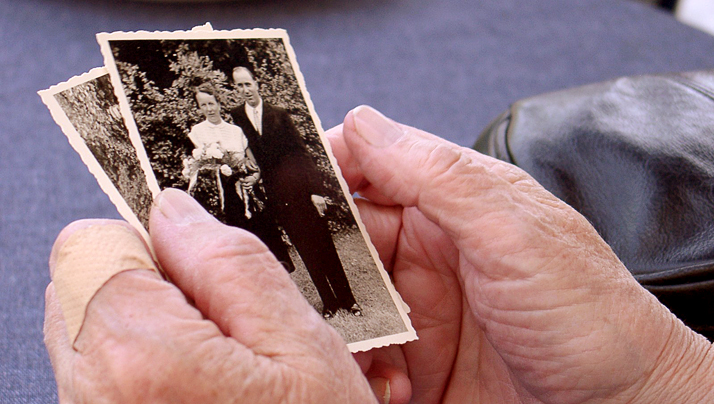
Aid and training for carers
Lugo Red Cross
Av. de Madrid, Lugo. 982 231 613
Psychological support, respite, training and resources for non-professional caregivers of dependent elderly people with dementia.
Types of dementias
Dementias are a group of neurodegenerative diseases characterized by the progressive deterioration of mental functions such as memory, orientation or language.
Dementias are irreversible and progressive. The most common are:
Alzheimer disease: Problems in memory, learning, thoughts and behavior. Language disorders. Sleep disturbances. Difficulty performing activities of daily living.
Frontotemporal dementia: Emotional and personality changes (apathy, mood). Behavior alterations (repetitive and compulsive, isolation, problems of personal hygiene). Difficulties in language.
Dementia of Lewy bodies: Cognitive and mental impairment, hallucinations. Tremors, muscle stiffness, weakness, unsteady gait. Sleep disturbance. Mood and Behavior Impairment.
Vascular Dementia: Cognitive, intellectual and emotional impairment (depression, agitation, confusion). Concentration problems. Communication between the patient and the caregiver is possible until very advanced stages,
Mixed Dementia: Also called multifactorial dementia. It is the combination of two or more types of dementia and has a major impact on the brain.
Disability and Dependency
All these diseases produce a very high degree of disability.
Older people with dementia need permanent help and personal care. Generally the care of these people in the family environment is in the hands of non-professional caregivers. The care of an elderly person with dementia presents many obstacles for families and caregivers. In many cases, the elderly person has behavioral alterations and depressive symptoms, delusions or hallucinations requiring supervision for 24 hours a day.
Overload of caregiver
Non-professional caregivers altruistically assume the primary tasks and responsibilities of caring. Throughout the process progressively increases the physical, psychological and emotional burden of the caregiver, until a total daily dedication to his family member, which can cause problems of physical and mental health.
Help for non-professional caregivers
To improve caregivers and reduce their burden, anxiety, and depression, a program is needed that combines educational support, emotional support, and resource facilitation.
Training courses and useful information specialized courses for care of people with Alzheimer's, supporting documents, publications, magazines, books, videos
Caregiver Help Phone and psychological and emotional assistance.
Project respite, Red Cross volunteers replace for a few hours a week the caregiver of the dependent person.
Free phone number: 900 365 100
Guidance to carers
Caregiver tips
Training caregivers
Download + information
